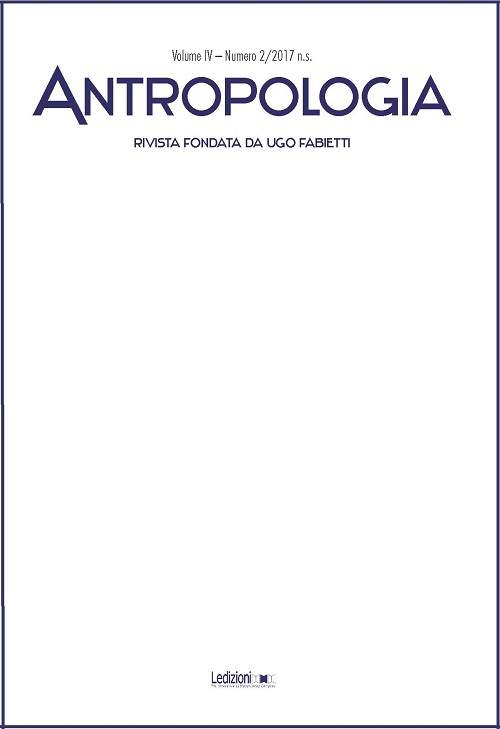Orphans, Victims and Families: An Ethnography of Children in Aceh
DOI:
https://doi.org/10.14672/ada20171289%25pParole chiave:
Indonesia, Orphans, Childcare, Attachment, Matrifocality, PesantrenAbstract
A long civil conflict and the 2004 tsunami left 80,000 children in Aceh without at least one of their parents. Orphanhood is a category both of childhood and suffering, which needs to be examined more closely. In this article, I tackle two issues: what constructs an orphan in the Acehnese post-catastrophe society and what institutionalised “orphans” actively do within and beyond their definition as such. More specifically, I consider some institutions called panti asuhan, “home for the care of the needy”, as well as dayah or pesantren, Islamic residential schools that host orphaned and poor children. I first describe what the idea of “orphanhood” conveys for the Acehnese I encountered and then turn to the dialogue between families and institutions using some specific cases. This will relate to practices and ideas of marriage and parenthood in a prevailingly matrilocal society, where single women (janda) are not an exception. The way children experience and shape the construction of affective ties through space and suffering is one of the recurrent themes. The conclusions highlight how the children’s re working of social and international categories such as orphanhood, victimhood and family collides with the social use of orphanhood as a highly valued social foundation.##submission.downloads##
Pubblicato
2017-10-31
Fascicolo
Sezione
Special Focus
Licenza
- Gli autori mantengono i diritti sulla loro opera e cedono alla rivista il diritto di prima pubblicazione dell'opera, licenziata sotto una Licenza Creative Commons - Attribuzione che permette ad altri di condividere l'opera indicando la paternità intellettuale e la prima pubblicazione su questa rivista.
- Gli autori possono aderire ad altri accordi di licenza non esclusiva per la distribuzione della versione dell'opera pubblicata (es. depositarla in un archivio istituzionale o pubblicarla in una monografia), a patto di indicare che la prima pubblicazione è avvenuta su questa rivista.




